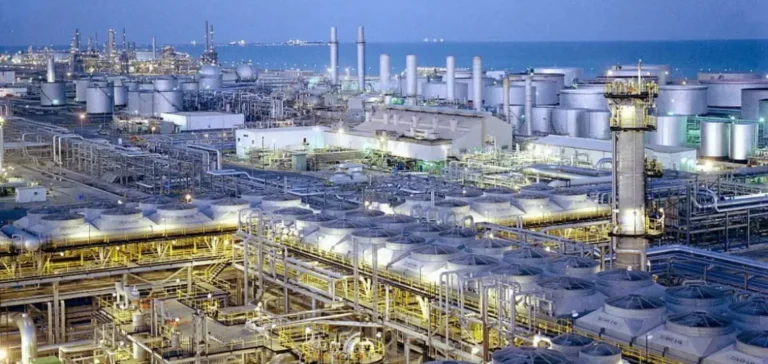Aramco, one of the world’s leading energy and chemicals companies, has concluded a $11 billion lease and leaseback agreement for its gas processing facilities in Jafurah. The deal involves an international consortium of investors led by funds managed by Global Infrastructure Partners (GIP), affiliated with BlackRock. It represents one of the most significant recent foreign direct investment transactions in Saudi Arabia’s midstream gas sector.
The Jafurah field is the largest non-associated gas development project in Saudi Arabia. It is estimated to contain approximately 229 trillion standard cubic feet of raw gas and 75 billion barrels of condensates. The development of the field aligns with Aramco’s strategic plan to increase its gas production capacity by 60% between 2021 and 2030.
A new operational entity to optimize infrastructure
As part of the transaction, a dedicated entity named Jafurah Midstream Gas Company (JMGC) has been established. This entity will manage the lease of development and usage rights for two key infrastructures: the Jafurah Field Gas Plant and the Riyas NGL Fractionation Facility. These assets will then be leased back to Aramco for a 20-year term, with a contractually agreed tariff in exchange for exclusive rights to receive and process raw gas from the Jafurah field.
Aramco will retain a majority stake of 51% in JMGC, while the remaining 49% will be held by the investor consortium led by GIP. The agreement does not impose any restrictions on Aramco’s production volumes and is expected to close soon, subject to standard closing conditions.
Growing interest in regional gas infrastructure
The deal highlights the growing interest of institutional investors in energy infrastructure across the Middle East. The consortium also includes major financial institutions from Asia and the Gulf region, supporting the project. This foreign participation confirms the attractiveness of Aramco’s midstream gas assets amid strong regional demand.
GIP’s mid-market infrastructure investment team has extensive experience in contractual infrastructure projects across the region. This new investment builds on an existing relationship: in 2022, BlackRock co-led a consortium that acquired a minority stake in Aramco Gas Pipelines Company. This strategic continuity reflects a shared intent to optimize existing infrastructure while ensuring the long-term profitability of the gas sector.






















